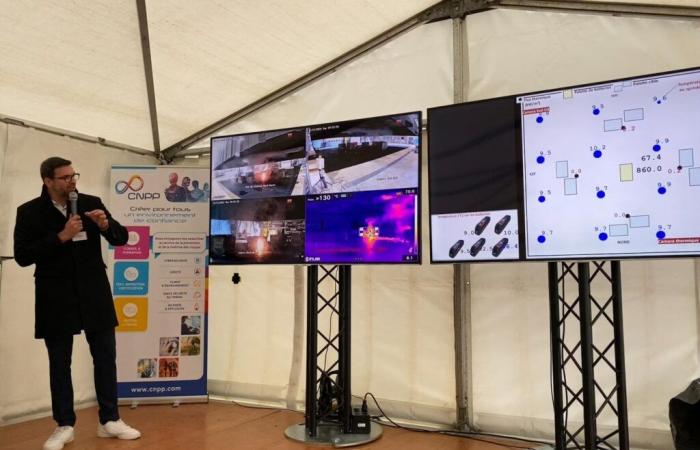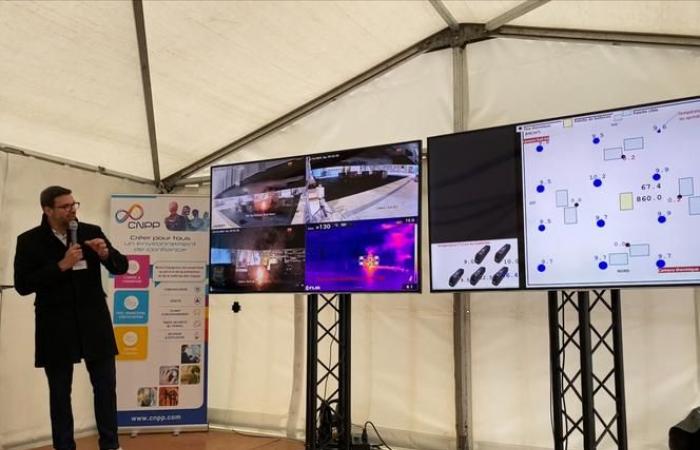In a few minutes, the temperature of one of the 40 electric bicycle batteries stored on a pallet in a 270 square meter hangar rises to 800 degrees. The cardboard catches fire, the flames quickly rise to the ceiling, the explosions follow one another and project embers towards other pallets stored a few meters away.
Sixteen minutes after the start of the fire, the rise in temperature triggered the “sprinkler”, the automatic extinguishing system installed in the ceiling of the hangar, which sprayed the hearth for half an hour until the temperature fell. .
Monitored by multiple temperature and heat flow sensors, this fire, which occurred on November 12, was not accidental: it was a test, carried out and supervised by experts from the National Center for Prevention and Protection. protection (CNPP), in a specially equipped hangar at its Saint-Marcel (Eure) site.
Tests of this type, in conditions reconstituting a common storage configuration on a production site, the Center plans to carry out several on behalf of the France Assureurs federation, which now considers fires linked to lithium-ion batteries as a risk “emerging”.
Read the article: Article reserved for our subscribers “Insurers seem to have long been deluded about their ability to adapt to the risk of climate change”
Read later
This test campaign aims to better understand how these fires start and can spread, while measuring the effectiveness of a sprinkler system. With, ultimately, the possibility of developing standard solutions likely to limit losses, and of course to reduce the overall cost of their compensation.
Phenomenon known as “thermal runaway”
Precedents in France are still rare, but several cases have already marked the profession, such as the spectacular fire of a Parisian electric bus in the middle of the street, in April 2022, the destruction by fire of 900 tons of batteries in a building of a collection and recycling company in Aveyron, in February, or the explosion of a scooter battery in an apartment in Dunkirk (North), in June.
But insurers are under no illusions: the widespread use of batteries in homes and businesses, whether they equip mobile phones, computers, scooters, bicycles or cars, implies a threat of repetition of this type fire.
“The greening of the economy requires the multiplication of batteriessummarizes Florence Lustman, president of France Assureurs. But more batteries also mean more risk. And even if this risk is very rare, when it materializes, it can be tragic. »
You have 52.32% of this article left to read. The rest is reserved for subscribers.







